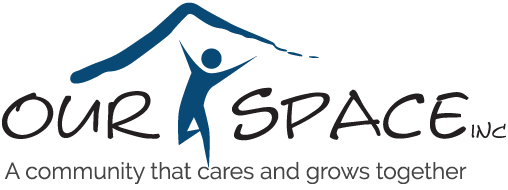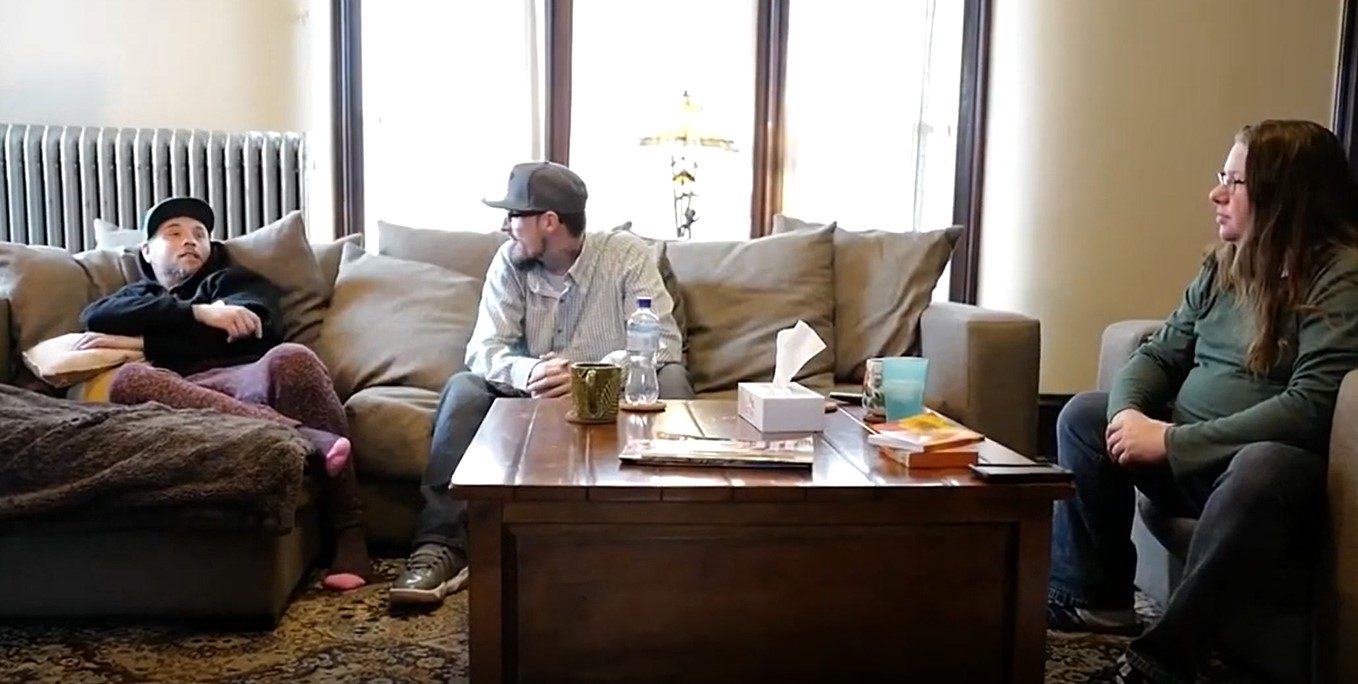
While many community organizations are reducing their level of in-person contact in light of the COVID-19 pandemic, Our Space, Inc.’s Parachute House Peer-Run Respite is meeting people face-to-face in the midst of their most difficult crises.
The stately 1880’s Victorian house opened its doors in February of 2019 and was the first peer-run respite facility in Milwaukee County. The Parachute House serves up to five guests at a time. The exact location is undisclosed for the safety and anonymity of the individuals who utilize its services.
According to Jennifer Zuelke, a Peer Support Specialist at the Parachute House, the facility “offers an alternative to hospitalization, or support within a clinical setting, for individuals who are in a low-level crisis situation.” Not only does this help free up the healthcare system, it also provides support that guests might not receive through traditional resources.
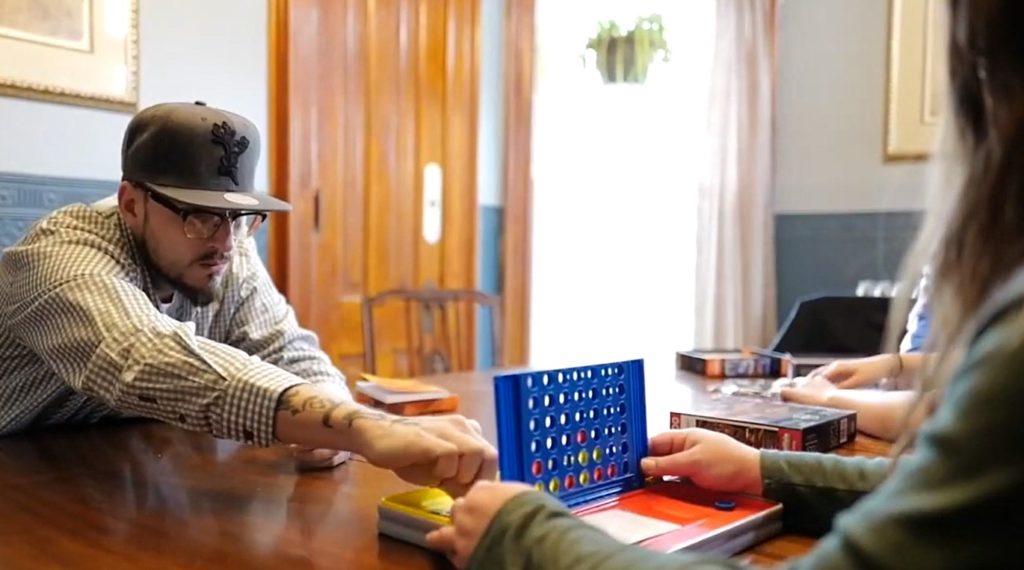
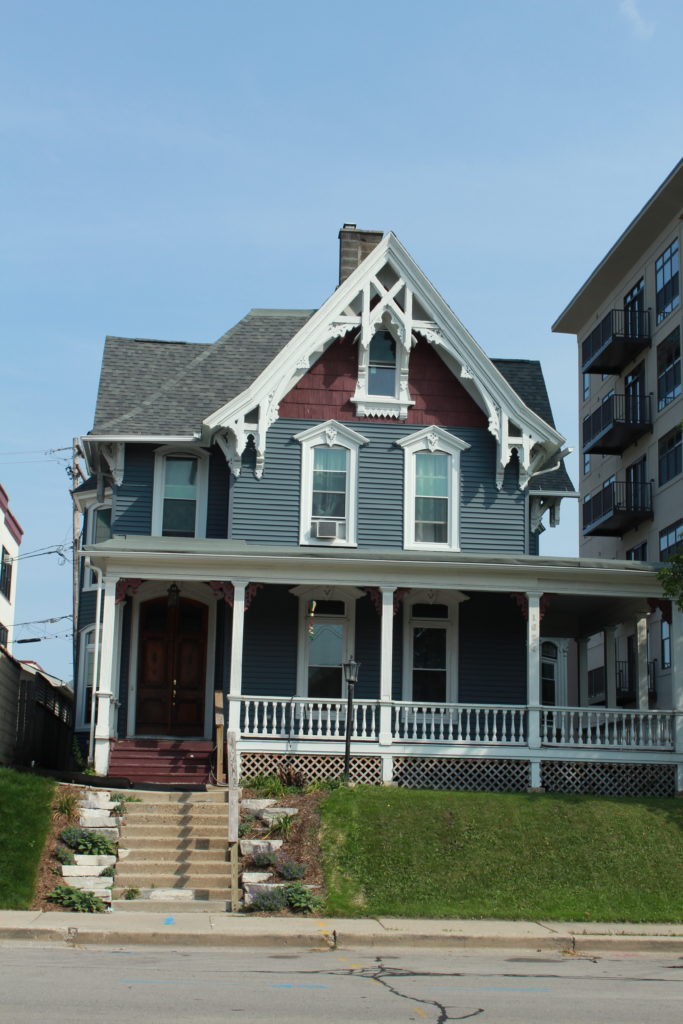
One of the keys to the success of the Parachute House is the use of the peer support model, whereby Peer Support Specialists who are certified by the State of Wisconsin, utilize their lived experiences to guide guests in the recovery journey. “Peer support makes all the difference. It’s only natural that someone who has been through the same issues is often the best person to empower and support people in a crisis situation,” Zuelke adds.
Many individuals who come to the Parachute House have utilized the traditional mental health services with less than positive results. “Clinical settings can be uncomfortable, impersonal and even traumatizing to individuals who are in crisis, making them feel very vulnerable. Peer support connects at an authentic level, which allows our guests to share their truth and their untold story, while feeling heard and seen,” Zuelke shares.
Apart from a one-month period at the start of the pandemic, the Parachute House has been accepting new guests throughout the healthcare emergency. “At the start of the COVID pandemic, we were unable to accept new guests into the house, but we were still available through our 24-hour warmline.” The warmline serves as both a pre-screening tool, to determine if the Parachute House is an appropriate choice for the individual, as well as a place to offer support and connections to other community resources.
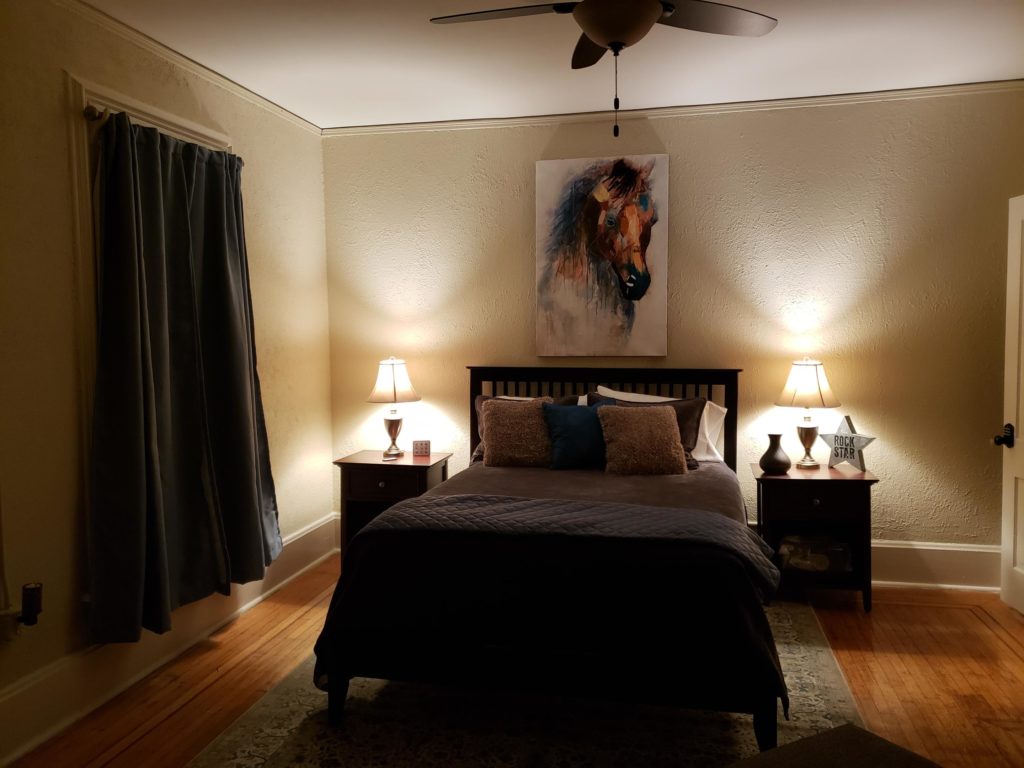
After adjusting to COVID-19 protocols, the facility commenced accepting guests in late April, and was the only peer-run respite in the entire state offering in-person services. “As you can imagine, there were so many people contacting us for support.” Zuelke recalls. The house provided 126 unique individuals 213 respite stays throughout all of 2020.
Jennifer is quick to point out that the house not only offers a place to recharge, it is also an important steppingstone for people coming out of a hospital setting. “We are an excellent resource for individuals who need a little more time and support to feel well enough to go home, as well as a safe place to transition into treatment and long-term services through other community connections.”
The intake process at the Parachute House is multi-faceted to ensure that guests are receiving the appropriate care. It starts with a pre-stay conversation through the house’s warmline number (414-877-5918). Peer Support Specialists are trained to guide the conversation and define the exact issues that led to the call. After the pre-stay discussion, the staff determines if the guest is a good fit for their services. Upon approval, the guest has the option to stay at the house for up to seven days.
In addition to the 24/7 support, once the guest checks into the house they can take part in a variety of different activities and groups. “Some of the activities and groups range from processing and discussion groups, to arts and crafts, yoga and exercise, mindfulness and meditation.” Zuelke notes. If guests are comfortable, the house staff can also provide a variety of alternative and holistic healing approaches, including sound therapy, human tuning, reiki, crystal therapy and meditation. “We believe there are many pathways in recovery and honor everyone where they are. If an individual just needs peace and privacy that is always available as well,” she suggests.
In the end, the goal for the staff at the Parachute House is to help the guest to leave in better place than when they arrived. “We want them to learn coping skills and techniques they can actually apply to their daily lives. Our hope is that individuals discover there are many pathways and resources to help them navigate through the mental health or substance abuse challenges they face. And of course, we want them to know that they are not alone, and that there is hope and a way,” Zuelke concludes.
